Domestic Abuse
What is domestic abuse?
Domestic abuse is when one person uses controlling, coercive or threatening behaviour towards another person aged 16 years or over and are personally connected. This can be current, ex-partners or family members, regardless of gender or sexual orientation.
It can include physical, emotional, psychological, sexual, and financial abuse.
How can I tell if I'm experiencing domestic abuse?
Domestic abuse isn't always physical. It can also involve emotional manipulation, threats, forced isolation from friends and family, financial control, or even constant monitoring of your movements. If you're feeling scared, controlled, or trapped, you may be experiencing abuse.
Is domestic abuse only physical?
No, domestic abuse can be emotional, psychological, financial, or sexual. Any behaviour that undermines your confidence, independence, or safety can be considered abusive.
What should I do if I'm experiencing domestic abuse?
If you are in immediate danger, call 999. If you're not in immediate danger but need support, contact Safe2Speak here Safe2Speak | Support from the St Helens Domestic Abuse Team
Can I get help if I don't want to leave my partner?
Yes, you can still get help. Domestic abuse services can offer support and guidance whether or not you choose to leave the relationship. There are options available to help keep you and any other family members safe and plan your next steps.
How can I help someone I suspect is experiencing domestic abuse?
If you are concerned about someone, offer support in a non-judgmental way. Encourage them to seek professional help and let them know about the services available. Do not pressure them but make sure they know that help is available when they are ready. You can also report the crime to the Police if you witness it (see or hear) on 101, and report anonymously to Crimestoppers on 0800 111 555
How can I report domestic abuse confidentially?
You can report confidentially to CrimeStoppers on 0800 111 555. You can also contact the National Domestic Abuse Helpline on 0808 2000 247 for support and advice.
Can I get legal protection from domestic abuse?
Yes, there are legal measures in place, such as restraining orders or non-molestation orders, which can provide protection from an abuser. Find out more about Domestic Abuse and the Law here.
What support services are available for people experiencing domestic abuse?
There are many local and national services that provide support, including helplines, emergency accommodation, legal advice, and counselling. A good local first port of call if you need non-emergency support is the St Helens Safe2Speak 24-hour helpline on 01925 220541.
Here is a full list of useful links to support services.
What is coercive control?
Coercive control is a form of abuse where the perpetrator seeks to dominate and control their partner through manipulation, threats, and isolation. It can be more subtle than physical violence but is just as harmful.




